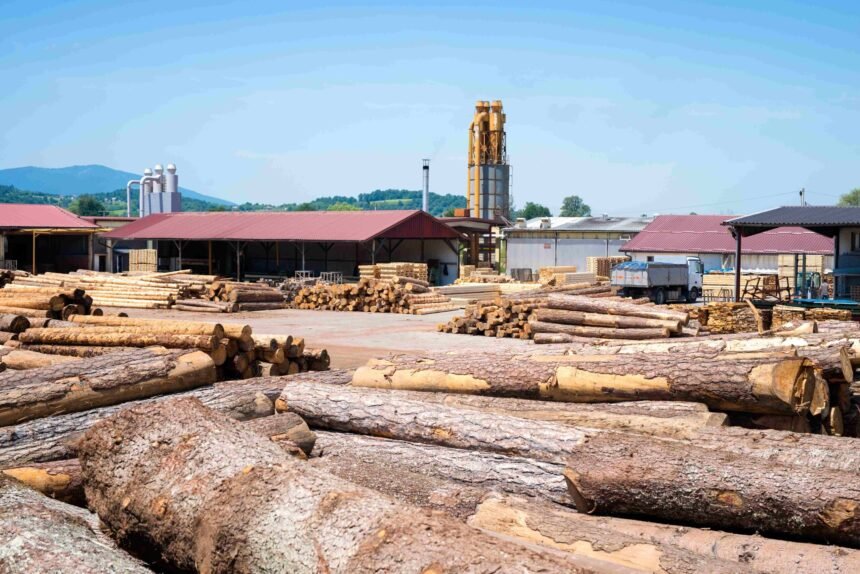What Is a Woodworking ERP System and How It Supports Wooden Manufacturing
An integrated digital system, a woodworking ERP system oversees all stages of the wooden manufacturing process, from acquiring raw materials to delivering the finished product. It aids in inventory optimisation, production control, and general efficiency improvement for woodworking businesses. In contrast to spreadsheets or older systems, an ERP consolidates several processes into a single, interconnected platform, including cutting, assembling, polishing, packaging, and shipping. This guarantees instantaneous visibility, enhanced departmental collaboration, and expedited decision-making.
A specialised ERP is essential in the wooden manufacturing industry, where even small material waste or scheduling delays can have a significant financial impact. Woodworking ERP systems remove uncertainty through automated tracking, production scheduling, and real-time data insights. Businesses who spend money on odoo implementation services gain access to a customized ERP solution that functions well in their particular setting. These services aid in configuring modules tailored to a particular industry, integrating with intelligent machinery, and offering plans for continual improvement, all of which eventually result in more efficient operations, higher-quality products, and shorter production cycles.
Advantages of Choosing Odoo ERP Setup for Long-Term Manufacturing Growth
Centralized Data Management: Odoo ERP brings all business processes under one platform, making it easy to manage data related to production, stock, procurement, and sales. This eliminates data silos and ensures that decision-makers have access to real-time and accurate information across departments. With centralized control, wooden manufacturers can reduce manual errors, track every unit of inventory, and accelerate workflows with better inter-department coordination.
Improved Production Planning: With Odoo’s Manufacturing and MRP modules, production scheduling becomes smarter and more responsive. Woodworking units can define bill of materials (BoMs), optimize cutting plans, manage work centers, and ensure timely procurement. These tools reduce idle machine time and resource conflicts, helping businesses align production with demand forecasts.
Waste Reduction Capabilities: Odoo’s advanced reporting and traceability features help identify production inefficiencies, leading to reduced raw material wastage. The system offers batch-level tracking and precise cutting suggestions, which ensures optimized usage of wooden sheets and planks. Over time, this minimizes financial loss due to scrap material and contributes to sustainability goals.
Scalability with Modular Design: One of the greatest benefits of using Odoo ERP is its modular architecture. As the woodworking business grows, additional features like eCommerce, CRM, or IoT integration can be added without disrupting the existing system. This scalability ensures that the ERP evolves with the business needs making it a future-ready investment.
Enhanced Customer Service and Delivery: With integrated sales and logistics modules, businesses can ensure timely order fulfillment and provide customers with accurate delivery timelines. Real-time inventory updates, order tracking, and automated invoicing make customer interactions smoother and more reliable, enhancing brand reputation.
Cost Efficiency Over Time: Odoo’s open-source nature makes it a cost-effective ERP solution compared to proprietary software. The return on investment is quickly realized through better resource management, reduced wastage, and enhanced employee productivity. Additionally, automation of repetitive tasks saves labor hours and allows staff to focus on higher-value responsibilities.
Core Functional Modules That Boost Productivity in Wood Product Manufacturing
Manufacturing (MRP) Module: This module handles work orders, bill of materials, routing, and scheduling. It helps optimize workshop productivity by minimizing downtime and coordinating different production stages. It allows for flexible manufacturing strategies including make-to-order and make-to-stock approaches.
Inventory Management: With real-time stock tracking, barcode scanning, and batch/lot control, the inventory module prevents overstocking or stockouts. For wooden manufacturing, this ensures that raw materials like timber, plywood, and veneers are always available in required quantities without excess.
Purchase Management: The purchase module streamlines vendor management, automates RFQs, and tracks supplier performance. It helps woodworking units maintain stable supply chains and make cost-effective procurement decisions based on historical data and lead time analysis.
Sales Management: This module manages quotations, pricing, orders, and invoicing. It connects with inventory and production to ensure products are available and delivered on time. For custom wooden products, it also supports configurable options that match client requirements.
Quality Control: Integrated quality checkpoints during manufacturing ensure that each wooden product meets the defined standards. This module tracks defects, root causes, and corrective actions, ensuring reduced rework and maintaining product consistency.
Maintenance Module: This module helps schedule preventive maintenance and manage machine repairs. It minimizes downtime of woodworking equipment like CNC routers, saws, and edge banders, ensuring continuous production and extending machinery life.
Project Management: For custom furniture and large contracts, the project module assists in planning timelines, assigning tasks, and tracking milestones. It brings transparency and accountability to complex operations, enabling better delivery planning and customer satisfaction.
Key Operational Needs That Drive the Adoption of ERP in Woodworking Units
Accurate Inventory Tracking: Woodworking units handle varied raw materials logs, boards, finishes that need precise tracking. ERP systems ensure real-time stock visibility and prevent overstocking or shortages that could halt production lines.
Efficient Work Order Management: With complex manufacturing steps like cutting, sanding, and assembling, ERP enables effective sequencing of work orders to reduce waiting time, prevent clashes, and ensure timely order completion.
Real-Time Cost Monitoring: Tracking operational costs in real-time raw materials, labor, machine hours is essential for profitability. ERP provides dashboards and analytics to control budgets and forecast better.
Quality Assurance Across Production Stages: Consistency in finish and dimensions is vital. ERP helps woodworking units enforce quality control at every step reducing returns, improving customer satisfaction, and maintaining brand image.
Integration With Smart Equipment: Modern woodworking involves CNC machines and IoT tools. Odoo ERP integrates with such systems for auto-triggered processes, machine monitoring, and seamless data capture.
Custom Order Handling: Clients often demand unique designs or finishes. ERP supports product configuration, BOM adjustments, and dynamic pricing models making it ideal for custom woodworking projects.
Regulatory Compliance and Safety: The woodworking industry must comply with environmental, labor, and safety regulations. ERP helps track compliance documentation, safety audits, and workforce certifications effortlessly.
How Odoo Implementation can Streamline Processes and Minimize Material Wastage
Manufacturers of woodworking products today are facing tremendous pressure to cut expenses and increase productivity without sacrificing quality. Inaccurate inventory, production delays, and significant waste of pricey wood materials are frequently caused by manual operations or disjointed systems. Odoo ERP integrates all processes, from order entry to tracking raw materials and delivery of finished goods, giving production structure. Real-time dashboards and automated processes guarantee that the proper amount of wood is utilised at every step, with little waste or rework.
Businesses can acquire customised ERP configurations made to manage the intricacies of woodworking manufacturing by choosing odoo implementation services. These services guarantee that modules such as quality control, manufacturing, and inventory are precisely adjusted to fit workshop procedures. Smart integrations can minimise leftovers and optimise cutting plans in the middle of the manufacturing cycle. Implementing Odoo changes how woodworking businesses plan, carry out, and improve their operations with dependable data and centralized management, which eventually results in increased productivity and decreased waste.








